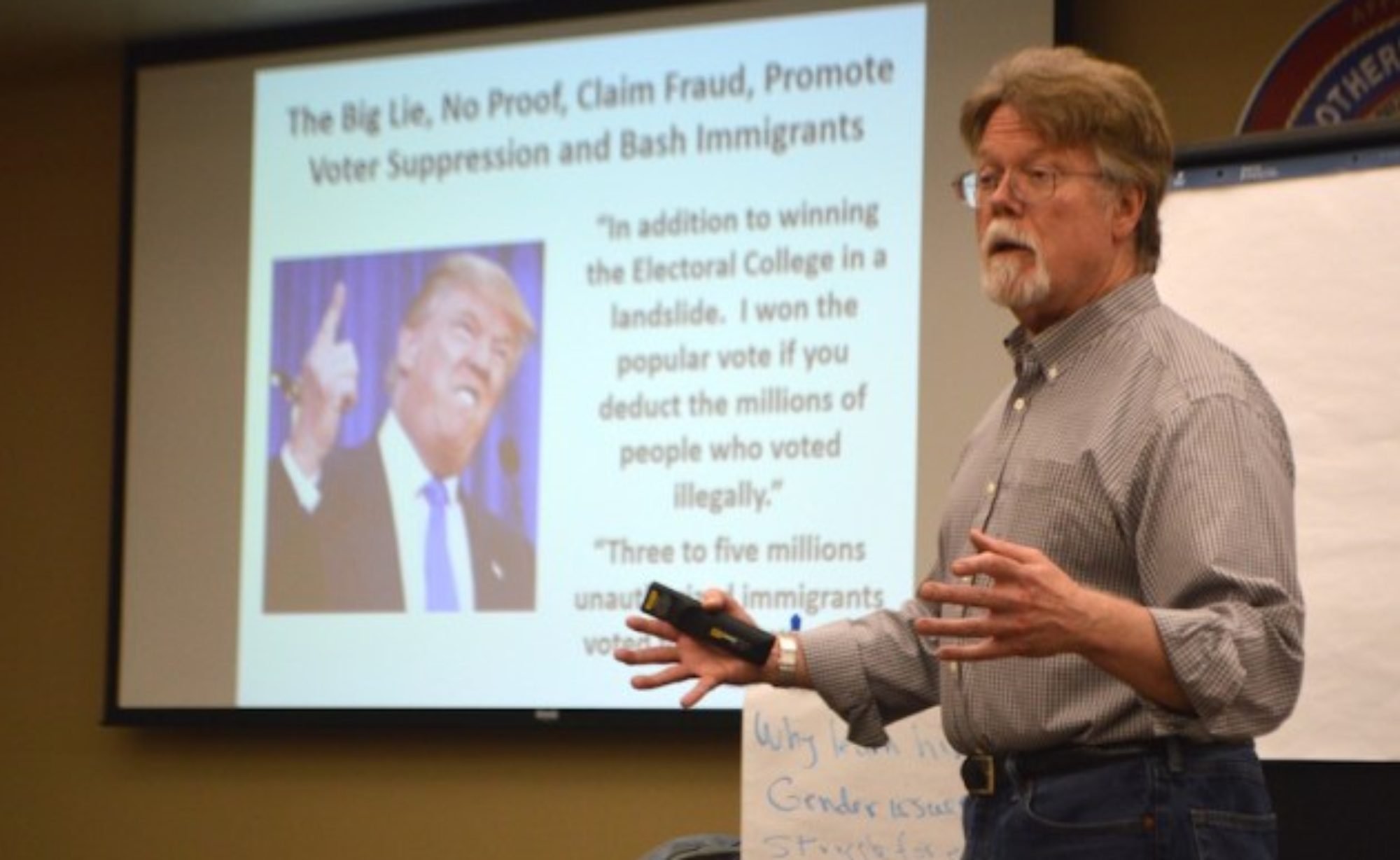This article was originally published for The Retiree Advocate at psara.org in September 2017.
On May 17 and June 21, PSARA held two 2½ hour workshops in Seattle which brought together leaders from 30+ labor and community-based organizations. The organizations represented labor; faith; communities of color; immigrant rights; youth; environmentalists; seniors; women; and gays, lesbians, bisexual, and transgender (LGBT) movements.
The goal of the workshops was to facilitate critically needed discussions across movements, organizations, and constituencies. Our focus was how we can collectively build the power needed to successfully resist the relentless attacks of Corporate America and more importantly, to build a better future for all. A critical component of this work is clearly articulating out thoughts on the following questions: What is the future that we want in addition to what are we trying to prevent? What deeply held values anchor our efforts to build that future?
After introductions, I made a short presentation about how Corporate America and the super-wealthy developed a comprehensive long-term strategy to reassert their dominance over our country. This strategy was based on the famous memo written by Lewis Powell on August 23, 1971. This memo became the blueprint of the well-organized attack of the following 40+ years. Two months later, President Nixon appointed Powell to the U.S. Supreme Court where he served 15+ years.
Our discussions began with a focus on all participants and their extended families, and their close friends and their extended families. They were asked questions focused on how they have experienced the past six years in terms of direct economic impacts, discrimination, and concerns about the environment and their economic futures. This exercise demonstrated a great deal of “common ground” in the midst of considerable diversity in the room.
Participants were then asked how they felt about this shared pain. A second level of “common ground” emerged as many expressed their anger, frustration, sense of betrayal, and concerns for the future for their children and grandchildren. A few participants expressed hope that we can turn our country and world around toward a better future.
A third level of “common ground” emerged as the discussion shifted to what deeply held personal values were being violated by the economic injustice, discrimination and growing environmental concerns expressed by participants.
Five broad categories emerged:
1. We are all one people who care for each other.
2. Our economic and political life should serve the needs of we the people.
3. We the people and working people have a fundamental right to shape our future.
4. An injustice to anyone is an injustice to all and must be ended.
5. We must ensure that our earth’s environment is protected.
With three levels of “common ground” identified, the discussion shifted to the important question of “What is your dream for a better future?”
The following general themes surfaced:
1. We are all one people and one human family.
2. We have responsibility to create a peaceful and sustainable world for everyone.
3. We all have fundamental rights to genuine economic, social and political opportunity and security.
4. We must heal the longstanding injustices of racism, sexism, classism, homophobia and hostility to immigrants.
5. We have fundamental rights to fairness and justice in our world of work.
6. We need to strengthen our political and economic democracies to ensure a better present and future.
The values and elements of a desired future listed were not finalized but reflect the emerging thinking of the participants. The strong consensus was these were a good step but needed refinement.
At the end of the second workshop, there was strong support for continuing this important dialogue on shared values and visions. There was also support for talking about how we work together more effectively and strategically across organizations and movements over time. Several key leaders also volunteered to serve on a planning committee to consider next steps.
PSARA agreed to report back on the work to date and make recommendations on how we might continue to move this process forward. Corporate America has their long-range vision and plan anchored in their values.
We ask “What is our long-range vision and plan anchored in our own shared values?”
A big question, but one we must answer…more later.
